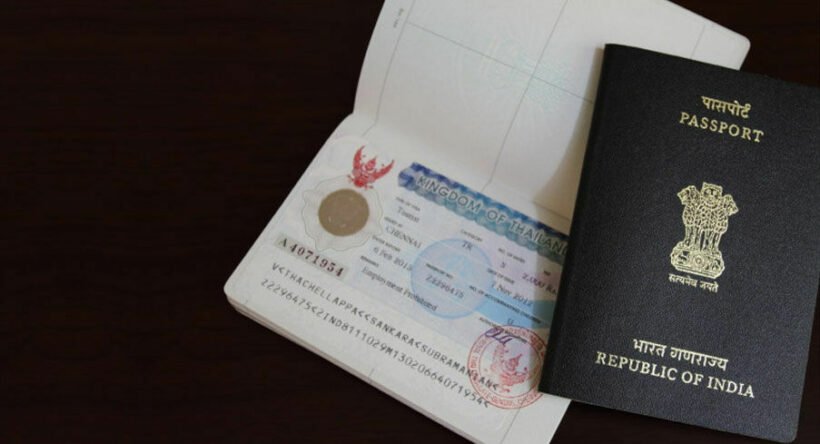Thailand advises Indians to obtain visa prior to travelling to avoid long queues

The Royal Thai Embassy in India advised Indians to obtain visas from the embassy or consulate before travelling to avoid long queues at Bangkok‘s Suvarnabhumi Airport upon arrival in Thailand.
International tourists have been flooding into Thailand since High Season began last month. For the first time in years, 50,000 foreign tourists passed through immigration at Suvarnabhumi Airport in one day last month. The number one tourists were Indians, with 5,200 arriving that day.
Despite immigration officials staffing all the available booths and reportedly spending no longer than 45 seconds checking the documents of each arrival, tourists are still queuing up for hours to get through the border into Thailand.
To lure in tourists, Thailand is granting longer stays to tourists this High Season. So while Indians are eligible to gain a visa on arrival that grants them up to 30 days in the kingdom, their holiday might get off to a bitter start if they end up waiting hours for their visa.
The embassy advises obtaining a visa at their local Thai embassy or consulate before travelling to make the process smoother and faster. Tourist Visa (TV) grants a stay of up to 60 days.
Thailand’s ambassador to India Pattarat Hongtong said…
“I think this is quite natural for any airport, not only in Thailand. When we open the borders, nobody can expect the actual number of incoming visitors or tourists. So that’s why for Indians we advise them to get a visa from the Embassy or Consulate General before travelling to Thailand which can be helpful toward things.
“We have tried to improve by increasing the number of people who work at the airport to facilitate the tourists.”
Visa on arrival could be the one reason behind the long queues at Suvarnabhumi Airport, added Pattarat.
Thailand has no plans to increase visa fees for Indians, added the ambassador.
Latest Thailand News
Follow The Thaiger on Google News:


























